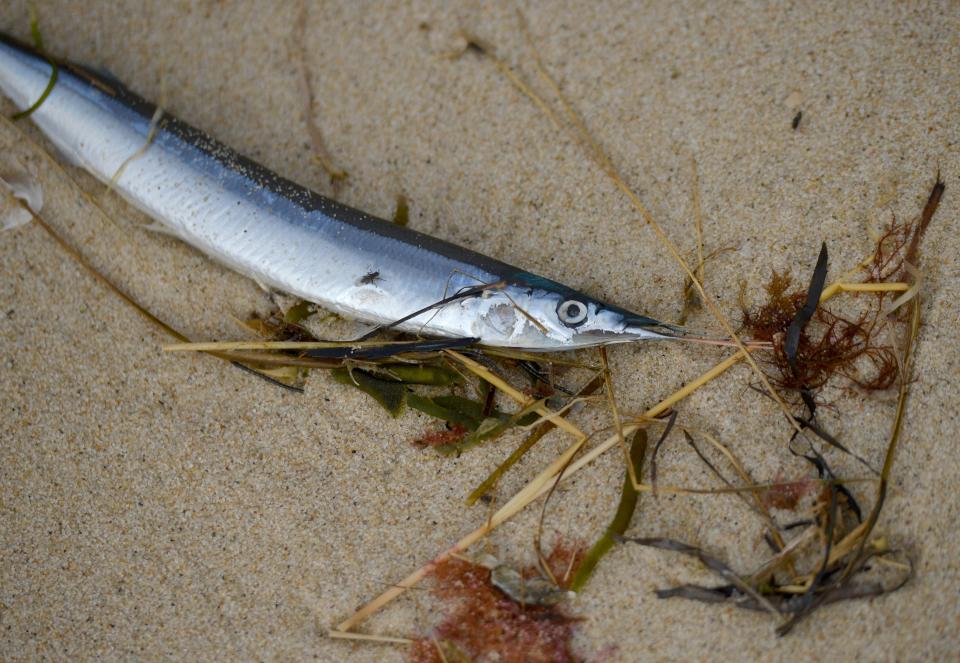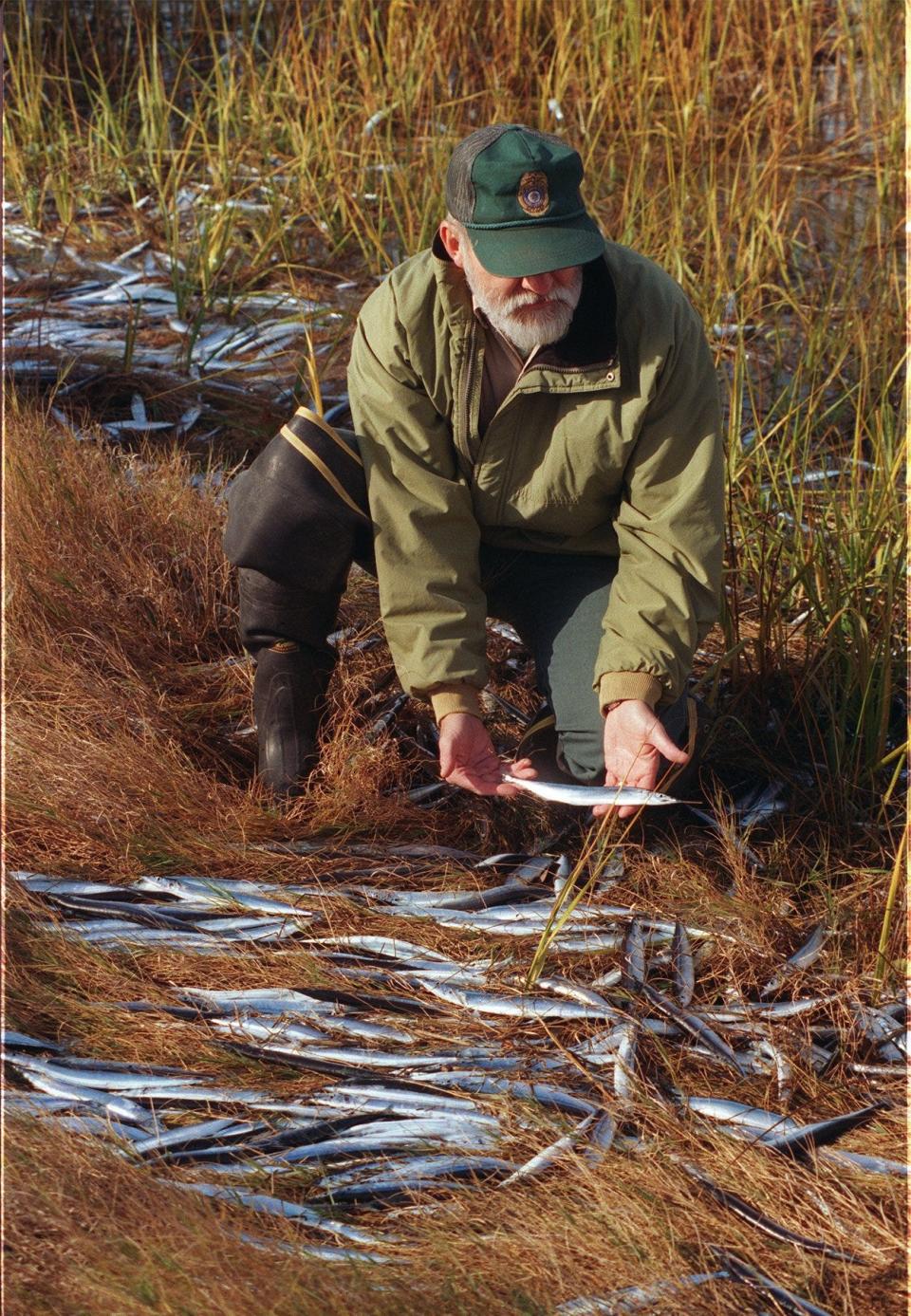'When they come in, they come in hard': Thousands of fish wash up on Cape Cod beaches
A saury situation has been playing out on Cape Cod Bay beaches in recent days. According to Owen Nichols, director of marine fisheries research at the Center for Coastal Studies, thousands of small, slender fish have been found on bayside strands from Wellfleet to Barnstable.
Known as Atlantic saury, the fish travel in large schools and are found in offshore waters from Newfoundland to North Carolina. According to the National Marine Fisheries Service, predators that nosh on them include sharks, Atlantic cod, dolphins and birds.

Nichols said that sauries on Cape beaches are a regular phenomenon, recalling similar episodes in 2018, 2016 and 1998. He also pointed to an article in an 1870 edition of the American Naturalist, that described similar saury strandings, with thousands of fish on the shore.
"When they come in, they come in hard," Nichols said.
The sad end for the sauries is a boon for other Cape animals, especially gulls and other birds that have lucked into a giant buffet.
"Anything that eats fish is going to be pretty happy about it," said Nichols, who added that he had heard a report of a saury-eating fox patrolling the wrack line.
Curious Cape Cod: A bird poop bonanza in Woods Hole
But people in our neck of the woods don't seem to have an appetite for the skinny fish with small pointed teeth. According to the National Marine Fisheries Service, "there is no directed fishery for the species in the western Atlantic, but Atlantic saury is an important food fish in other parts of the world."
After rummaging around the internet, we were able to find a Russian recipe for "Simple Canned Fish Salad with Egg," composed of hard-boiled eggs, chopped up saury from a can and green onions. "Literally from three ingredients, you can build a small masterpiece, and the taste is such that you cannot pull off by the ears," claimed the website, which hopefully means yummy.
Factors that lead to a mass saury stranding might include prevailing winds, big tides, cooling water temperatures and the presence of predators, said Nichols. Plus, "the shape of the Cape is essentially a giant natural fish trap," Nichols said.

Another theory on the cause of a saury stranding was floated years ago by noted Cape writer Sherrill Smith, who penned a popular column called "Woodstove." Here's what Smith had to say about sauries in the November 19, 1998 edition of the Register newspaper:
"Lately we've heard about or seen the massive landings of saury that came ashore on Cape Cod Bay harbors and marshes. These needle-nosed fish, sometimes called skippers, are slender and silvery and have a forked tail and those I saw were mostly less than 12 inches long.
Curious Cape Cod: Sperm whale swallows a Cape Cod man off Cape Verde islands 150 years ago
"Saury have left their distant habitats and visited the Cape's inner arm in the past. In the days of fish weirs, they were an occasional by-catch and went most often for bait. It is not known why they beach themselves and that means theories are up for grabs. Mine is that they are light attracted by the rising sun. They go for it, due east, and hit the beach and that's why they die. Why they are in the Bay in the first place can be someone else's homework."
As odd as it sounds, one thing to look for on upcoming bay beach walks is saury skeletons. According to Nichols, because of certain proteins in their blood, saury bones have a bluish-green tint.
Contact Eric Williams at ewilliams@capecodonline.com. Follow him on Twitter: @capecast.
Stay connected with Cape Cod news, sports, restaurants and breaking news. Download our free app.
This article originally appeared on Cape Cod Times: Thousands of saury fish wash up on Cape Cod beaches

